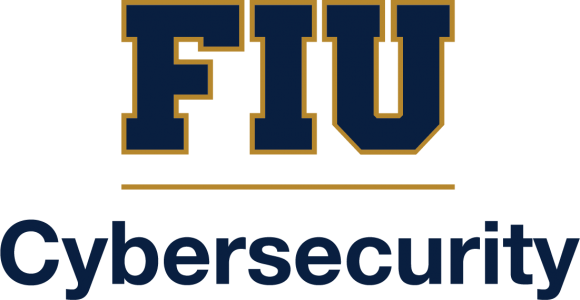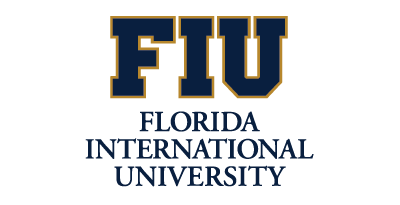Tuesday, May 9th 2023
| 13:30-15:00 |
PS 1: Networking industry quo vadis? Paving the ground for new networking business models for the future Room: Bayview Ballroom Moderator: Toerless Eckert, Futurewei, USA
Panelists:
|
Abstract:
The Internet has transformed society and enabled the digital economy. High-tech companies that build their business models on top of the Internet are among the most valuable on the planet, benefitting from a myriad of transformative business models that have emerged. However, the same development does not seem to have benefitted much the providers of networking services and networking vendors that enable the Internet itself, as networking services and their associated infrastructure are becoming commoditized in a market that seems to be stagnating.
This raises a number of important questions: Is this perception correct? If so, what types of impulses and advanced are needed to reinvigorate the industry? Are there ways in which the networking industry itself can benefit better itself from the value creation on top that it helps enable? In recent years, much has been made of the arrival of Software-Defined Networking, of network programmability, of compute and microservices inside the network, of placing increasing amounts of intelligence at the network edge. Can these technical advances be translated into new business models? What is missing - how can new business models be enabled that can in turn stimulate new growth and that can help pave the way to the next innovation cycle in networking? What technological advances are needed and what role does management technology play in their creation? What opportunities does this create for researchers? These and other questions will be discussed on the panel, which aims to put some of the more academic topics that are discussed at the conference into a practical perspective that may also help frame some of their business relevance.
 Toerless Eckert (moderator)
Toerless Eckert (moderator)
Toerless Eckert is a Distinguished Engineer at Futurewei USA in Santa Clara California, where he is working on the long term evolution of networks. Toerless has broad experiences in distributed systems and network technologies including layer 2, routing, quality of service, IP multicast, application integration and automation. He has has been working for more than 30 years for public research organizations and commercial vendors in roles that include planning, building and operating networks; education, research, development and standardization. Toerless is co-chair of the IETF ANIMA working group on network automation and holds over 40 patents in the field of networking.
 Amina Boubendir
Amina Boubendir
Dr. Amina Boubendir is currently Head of Research and Standardization Strategy at Airbus Defence and Space. She promotes research and technology to overcome secure communications challenges like reliability, sovereignty, and sustainability through development projects on 5G/6G networks, space and satellite communications, aerial connectivity platforms, military communications, artificial intelligence, and quantum computing. Sitting at major engineering and leadership boards, Amina sponsors the presence and contributions of Airbus at a number of European and global SDOs like, 3GPP, TMForum, ETSI, IETF/IRTF, and DIFI consortium. She represents Airbus at the European 6G Industry Association (6G-IA) and is a member of the advisory board of the European 6G Flagships Hexa-X I, Hexa-X II.
Amina worked as a researcher and as Research Projects Technical Manager at Orange Labs in France from 2013 to late 2021. She was an expert member of the Orange experts’ community on networks of the future with expertise in the automation and software-oriented design and management of end-to-end networks and services. Amina has led a number of 5GPP EU and French-national collaborative research projects on the move towards network “servicification”, openness, programmability, and virtualization through NFV and open APIs, 5G network slicing, zero-touch network management, IoT and Edge infrastructures federation, as well as 6G networks where she has been co-leading the Orange 6G strategy. She was the technical manager for French projects in addition to MOUs with major telecom vendors. She has also driven B2B innovation projects on 5G for industrial verticals, namely the Energy, the Automotive, the Railway, and the Healthcare industries.
Amina holds a PhD in Networking and Computer Science and a Master Degree in Network Design and Management, both from Télécom Paris. Amina is a member of the IEEE Communications Society. She has co-authored 30+ publications and has received 5 Best Paper and Best Demo Awards. She has also mentored PhD and Master Students and is invited lecturer at Master programs. Amina is actively involved in the network and service management community where she delivers keynote speeches and participates at experts’ panels. Amina also regularly acts as chair on organizing committees and member of technical program committees at IEEE and IFIP conferences and workshops, like NOMS, IM, CNSM, ICIN, NetSoft, NoF, CloudNet, 6GNet and MILCOM; as well as reviewer of book editions and IEEE journal issues like TNSM, JNSM, JSAC, or JONS. She has also served as Associate Technical Editor and member of the Editorial Board in the IEEE Communications Magazine."
Emmanuel Dotaro
Emmanuel Dotaro is VP at Thales, Fellow 5G-6G expert. He is in charge of 6G topics across the Thales group with CTO organization. He received an M.S. degree in Computer Science from the University of Versailles, France in 1996. He was three years with the Institut National des Telecommunications Performance Evaluation lab. as PhD student while holding a teaching position at the University of Versailles. He joined in 1999 the Alcatel Research and Innovation lab. at Marcoussis, France. He was director of research on networking topics at Bell Labs including successively Packet Transport Infrastructure and Semantic and Autonomic Technologies. He joined Thales in 2009 as director of innovation for C4I systems and was until 2022 the director of ICT and Security labs at Thales Secure Communications and Information Systems. He holds more than 30 papers as author or co-author as well as more than 40 patents in the ICT field. He is at the initiative, contributor or leader of various European or national collaborative R&D projects. He is serving at various international conference or journal Technical Committees. Beside his current research and innovation management activities he is involved in various National or European ICT and Cybersecurity initiatives: - He serves at the 6G-IA association Governing Board as well as specific Task Forces or Working Groups (Verticals, Policies, Security,…). Although, he is devoted to foster collaborations between Network and Security communities/ecosystems. - He is member of the NetworldEurope Steering Board and expert group. Belonging to the editors of the European Strategic Research and Innovation Agenda and in particular Security chapter. - he is Participating to Scientific committe, certification and research activities of ECSO association (cybersecurity community) - He is the chair of the Cyber & Security Hub (260+ members) from Systematic Paris-Region cluster - He is active in multiple industrial and research digital-related ecosystems such as Cyber Campus, Strategic digital infrastructure committee and Strategic Security Industry in France.
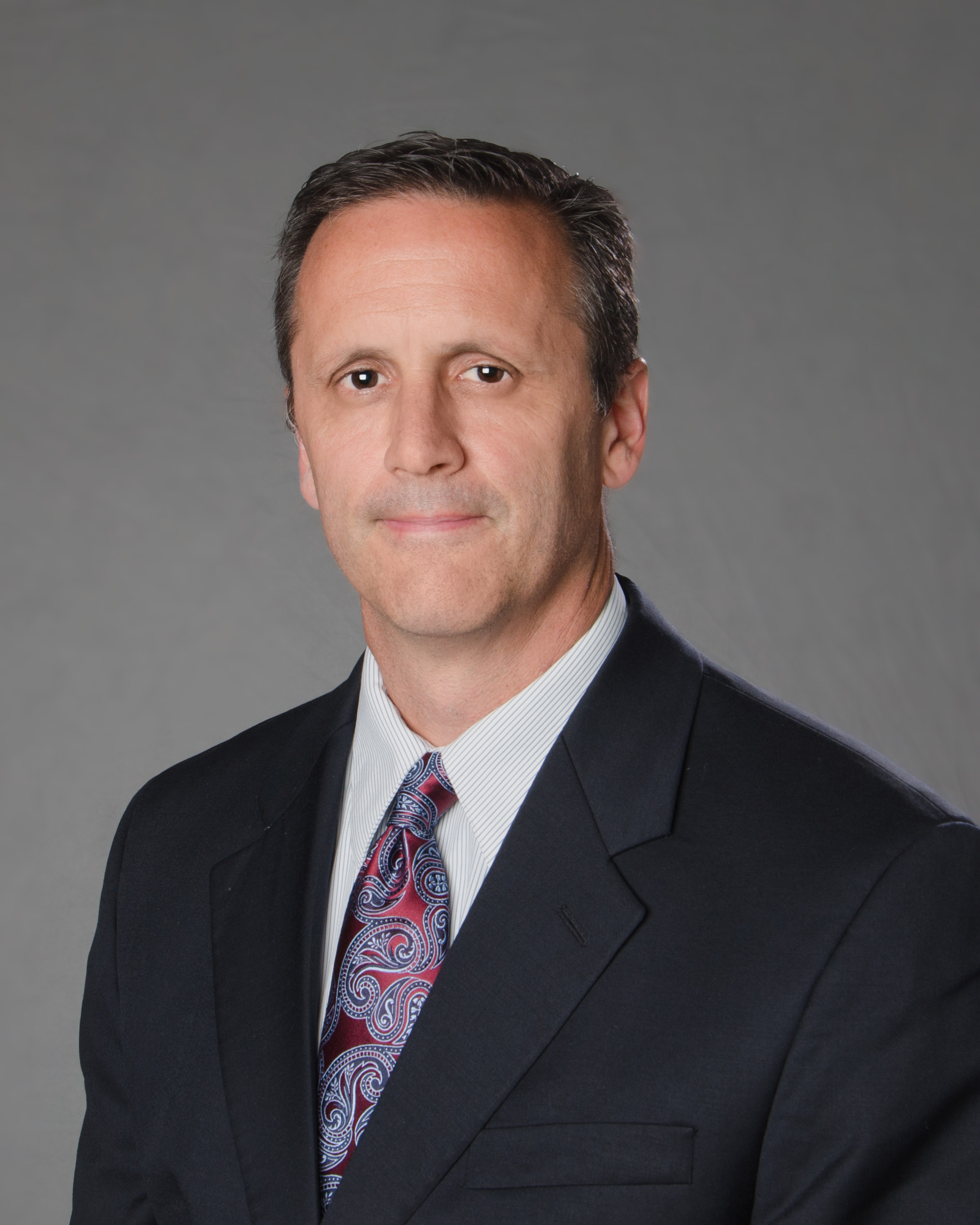 Robert Howald
Robert Howald
Dr. Howald has over 35 years of technology and executive experience and is a Comcast Fellow in the Technology, Product, and Experience CONNECT Organization. He has taught graduate courses in communications and wireless engineering and published hundreds of papers related to cable technology and communications systems in industry and academic journals. Rob has a BSEE and MSEE from Villanova University, a Ph.D. from Drexel University, and an MBA from DeSales University.
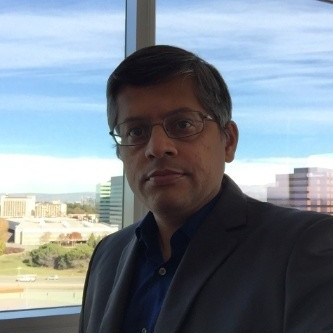 Dr. Prasad Jogalekar
Dr. Prasad Jogalekar
Dr. Prasad Jogalekar is a recognized technology executive from Silicon Valley, California. He is currently the Head of the US arm of Global AI Accelerator unit at Ericsson, responsible for cutting-edge AI-powered telecom product and technology development. His teams are responsible for delivering a diverse set of high-impact AI solutions, ranging from knowledge management systems, computer vision, AI assisted cloud and integrated RAN features, AI assisted self-healing, optimized radio layers and AI-assisted intelligent services, among other areas. Dr. Prasad holds a PhD in Computer Science and Engineering and has led engineering teams in various Silicon Valley startups as well as Fortune-500 companies in the areas of AI/ML, wireless networking, storage, optical networking, and cloud computing. He is based in the Bay Area and enjoys playing Sitar music in his spare time.
Wednesday, May 10th 2023
| 9:00-10:30 |
PS 2: Towards more sustainable networking Room: Bayview Ballroom Moderator: Alexander Clemm, Futurewei, USA
Panelists:
|
Abstract:
Reducing greenhouse gas emissions to net zero is one of humankind's grand challenges of our time. Communication networks play an important role in addressing that challenge, as they reduce the need for physical travel and enable solutions that optimize effiency of resource and energy usage from smarter agriculture to more efficient factory floors. At the same time, the networking industry itself has a significant global carbon footprint on the order of around 1%, a similar magnitude as entire economies of major countries.
This raises the question of what steps the networking industry itself can take to become more sustainable. Many of the considerable gains that have been made so far are based on reaping the benefits of better transmission technology as well as hardware advances that have led to greater efficiency, but this may no longer be enough, in particular as Moore's law is ending. Other aspects above the physical layers may need to be increasingly looked into, including dataplane transport and control protocols. Just as importantly, there should be a role for management technology to play, from allowing sustainability considerations to factor into improved network planning to the facilitation of carbon-aware control loops. However, many questions abound, many not without controversy: Where are the specific opportunities? Should we focus on gains to be made in network technology itself or should efforts better be spent elewhere - on optimizing network deployments, on overlays, on adjacent areas such as data centers? Which tradeoffs need to be considered; would making such tradeoffs in favor of sustainability even acceptable to user of communication services? What role can standardization play? What items are actionable today with the promise of reaping immediate gains and which are the areas where more research is needed? These and other aspects will be discussed on this panel of distinguished international experts.
 Alexander Clemm (moderator)
Alexander Clemm (moderator)
Dr. Alexander Clemm is a Distinguished Engineer at Futurewei in Santa Clara, California. He has been involved in networking software and management technology throughout his career, most recently in the areas of high-precision networks and future networking services as well as network analytics, intent-based networking, service assurance, and telemetry. Alex has been regularly serving on the committees of NOMS/IM, NetSoft, and CNSM for many years (including on several occasions as general co-chair or TPC co-chair) and is the recipient of the 2020 Salah Aidarous Award given by IEEE CNOM and IFIP TC6.6 to "an individual who has provided unremitting service and dedication to the IT and Telecommunications Network Operations and Management community". Alex has an extensive publication record and holds an M.S. degree in computer science from Stanford University and a Ph.D. from the University of Munich, Germany.
Eve Schooler
Dr. Eve M. Schooler is a recognized expert in Networking and Distributed Systems. Her current work focuses on evolving the Internet toward a Sustainable edge-cloud infrastructure and Carbon-aware networking. After 18 years, she recently left Intel to embark on new adventures and to pursue an academic sabbatical in Sustainable Computing. At Intel, she was a Principal Engineer and Director of Emerging IoT Networks. Prior to Intel, she held positions at AT&T Labs-Research, USC's Information Sciences Institute, Apollo Computers and Pollere. Throughout her career, Dr. Schooler has served in leadership positions in various standards bodies including the IETF and NIST. She has authored over 60 publications and is an inventor on over 35 granted or pending patents. She holds a BS from Yale, MS from UCLA, and PhD from Caltech, all in Computer Science. She serves on the board of the Computing Research Association in the US, the EU’s SPATIAL H2020 Project, and on the Advisory council of the University of Delaware's Computing and Information Sciences department. She is an IEEE Fellow and the co-recipient of the 2020 IEEE Internet Award for her work on control protocols for Internet telephony and multimedia teleconferencing.
 Michael Welzl
Michael Welzl
Michael Welzl is a full professor in the Department of Informatics of the University of Oslo since 2009. He received his Ph.D. (with distinction) and his habilitation from the University of Darmstadt / Germany in 2002 and 2007, respectively. Michael has been active in the IETF and IRTF for many years, e.g. by chairing the Internet Congestion Control Research Group (ICCRG) leading the effort to form the Transport Services (TAPS) Working Group. He has also participated in several European research< projects, including roles such as coordinator and technical manager. His research interests include transport protocols and network architectures, with a focus on the Internet and on performance as well as energy efficiency.
 Carlos Pignataro
Carlos Pignataro
Carlos Pignataro (He/Him) is the Head of Technology and Data for Cisco’s Engineering Sustainability Office. In his current role, he is charged with both embedding sustainability into the engineering roadmap, as well as leveraging the portfolio to drive sustainability outcomes for customer. He has previously held various technology and executive roles at Cisco as a Distinguished Engineer and CTO for CX and for the Services Global SP business.
An innovative network thought leader, Carlos industry contributions include co-authoring or editing more than 50 Internet RFCs, four networking books, and co-inventing over 250 Issued US Patents. Originally from Argentina, Carlos is a 2021 HITEC 100 awardee, a Fellow at the National Academy of Inventors, Stevie's Tech Innovator of the Year and Information Technology Executive of the Year, Fast Company's 2021 Innovative Leader of the Year, co-founder of the International Society of Service Innovation Professionals, and recipient of dozens of industry awards including the 2019 IEEE Communications Society Industrial Innovation Award. Carlos values working for a more diverse and inclusive workforce and is the Cisco RTP site executive sponsor for the Conexión LatinX community, and the PRIDE LGBTQ+ community.
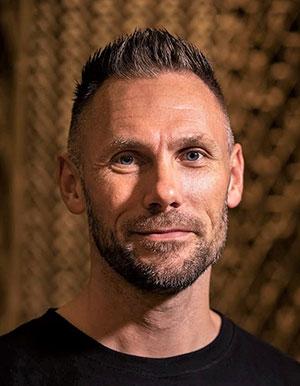 Laurent Ciavaglia
Laurent Ciavaglia
Laurent Ciavaglia is leading the network management, intelligence and data research and standards team at Nokia, and contributes to network automation technologies in various standards working groups and research communities.
Prior, Laurent has worked with Rakuten Mobile and Rakuten Symphony as Head of Autonomous Networks Innovation Europe.
He has extensive experience in inventing future network automation technologies with focus on intent-driven, zero-touch and artificial intelligence techniques.
Laurent is an experienced standards contributor as editor and co-author of multiple specifications in the IETF, IRTF and ETSI in the fields of zero-touch networking, intent-based networking, autonomic networking, closed-loop automation, telemetry, and integration of machine learning and machine reasoning functionalities in networking environments.
Laurent serves as co-chair of the IRTF Network Management Research Group (NRMG) and participates in standardization activities related to network and service automation in IETF, O-RAN, ETSI, ITU-T and TMF.
Laurent is also a proud member of the IEEE network operations and management community (CNOM).
| 13:30-15:00 |
PS 3: Cybersecurity as Central Factor towards Resilient Networks and Services Room: Bayview Ballroom Moderator: Marc-Oliver Pahl, IMT AtlantiqueFrance, France
Panelists:
|
Abstract:
Following the successful panel at NOMS 2022, this panel wants to raise awareness about the importance of cybersecurity for our community, and deepen the discussion around the topics we identified in the last edition. These include the use of blockchain, security-by-design and the difference between security and resilience. Ideally the participants will be more interested in cybersecurity after the panel. Ideally, they will care more about considering cybersecurity in their research, resulting in more security by-design. Today, our virtual and physical ambiances often consist of distributed networked systems. Managing networks and services therefore affects not only computer and communication systems but also Cyber-Physical Systems such as IoT devices orchestrating private, public, and commercial spaces such as industry 4.0 sites.
While the underlying softwarization and connectivity bring lots of opportunities, security is today’s central challenge. Cyberattacks such as the Colonial Pipeline incident, solarwinds, or continuous attacks with ransomware to hospitals and other critical infrastructures illustrate this.
In this panel, starting from the network and service management methodology, we will discuss cybersecurity implications, challenges, and solutions. We will cover different aspects, applications, points of views and solution methodologies. Central questions will include if we have enough cybersecurity awareness, methodologies, and security-by-design in the network and service management community, and how our community with its rich methodology and experience can support the cybersecurity community.
 Marc-Oliver Pahl (moderator)
Marc-Oliver Pahl (moderator)
Prof. Dr. Marc-Oliver Pahl heads the Chair of Cybersecurity for Critical Networked Infrastructures (https://cyberni.fr/) at IMT Atlantique in Rennes, France. He is an adjunct professor of Carleton University in Canada. Marc-Oliver also heads the IoT Smart Space research team (https://s2o.net.in.tum.de/) at the Chair for Network Architectures and Services at Technical University of Munich.
Marc-Oliver is Vice President of the German Chapter of the Association for Computing Machinery (ACM) (https://germany.acm.org/). He heads the Future Education activities of the German-French Academy for the Industry of the Future (https://future-industry.org/).
Marc-Oliver’s research focus is on a holistic approach to cybersecurity. He works on security-by-design, anomaly detection, human-in-the-loop, and automation. His goal is making cybersecurity manageable, resulting in highly resilient and reliable systems. Marc- Oliver publishes regularly in the network and service management and security communities.
Marc-Oliver is an experienced teacher and an eLearning pioneer. He holds several teaching- related awards. Marc-Oliver developed various teaching concepts and teaches continuously at university level since 2004. Besides specialized audience, he continuously runs activities for fostering the dialog between science and society, including https://talk.cybercni.fr, https://future-iot.org, and https://being-human-with-algorithms.org.
 Gabi Dreo
Gabi Dreo
Gabi Dreo is a Professor for Communication Systems and Network Security at the Bundeswehr University Munich, Funding Director of the Research Institute CODE, Coordinator of the EU H2020 project CONCORDIA, and holds several supervisory and advisory mandates in industry and public bodies. Besides, she is a member of the Digital Council of the German Ministry of Defence, a member of the Scientific Advisory Board of the National Cyber Security Council, a member of the World Economic Forum’s Global Future Council on Cybersecurity, member of the Bavarian Economic Advisory Council, member of the Board of the Security Network Munich etc. Professor Dreo studied computer science at the University of Maribor, Slovenia, and got her Ph.D. and habilitation from the Ludwig-Maximilians-University in Munich. In 2016 she was awarded the European Medal from the Bavarian Minister for European Affairs and International Relations Dr. Merk.
 Nur Zincir-Heywood
Nur Zincir-Heywood
Nur Zincir-Heywood is a Dalhousie Distinguished Research Professor and an Associate Dean Research of Computer Science with Dalhousie University, Canada. Her research interests include machine learning and artificial intelligence for cyber security, network, systems, and information analysis, topics on which she has published over 200 fully reviewed papers. She is the Co-Editor of the books Communication Networks and Service Management in the Era of Artificial Intelligence and Machine Learning (Wiley/IEEE), and Recent Advances in Computational Intelligence in Defense and Security (Springer) as well as the coauthor of the book Nature-Inspired Cyber Security and Resiliency: Fundamentals, Techniques, and Applications (IET). She is a recipient of several best paper awards as well as the Supervisor for the recipient of the IFIP/IEEE IM 2013 Best Ph.D. Dissertation Award in Network Management. She is an Associate Editor of the IEEE Transactions on Network and Service Management and International Journal of Network Management (Wiley), and a Guest Editor of Journal of Network and Systems Management (Springer).
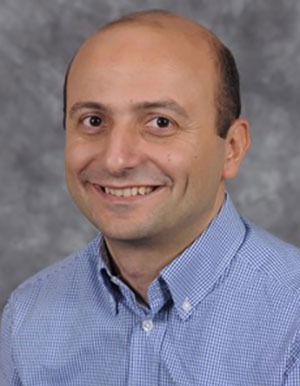 Kemal Akkaya
Kemal Akkaya
Dr. Kemal Akkaya is a full professor in the Department of Electrical and Computer Engineering with a joint courtesy appointment in the School of Computer and Information Sciences at Florida International University (FIU). He received his PhD in Computer Science from University of Maryland Baltimore County in 2005 and joined the department of Computer Science at Southern Illinois University (SIU) as an assistant professor. Dr. Akkaya was an associate professor at SIU from 2011 to 2014. He was also a visiting professor at The George Washington University in Fall 2013, a Faculty Fellow at Airforce Research Lab in Summer 2020 and visiting faculty at University of Florida Nelms Institute of Connected World in 2021. Dr. Akkaya leads the Advanced Wireless and Security Lab (ADWISE) in the ECE Department. He is also acting as the Research Director for the FIU’s Emerging Preeminent Program in Cybersecurity, which is a university wide interdisciplinary program. His current research interests include security and privacy, internet-of-things, and cyber-physical systems. His research was funded by many agencies and industries including NSF, DoE, AFRL, DHS, NSA, INL, Cisco, and TrendMicro. Dr. Akkaya is a Fellow of IEEE. He is the editor-in-chief of Springer Nature Computer Science journal, area editor of Elsevier Ad Hoc Network Journal, Computer Networks Journal and serves on the editorial board of IEEE Communication Surveys and Tutorials and Sensor Journals. Dr. Akkaya was the General Chair of IEEE LCN 2018 and TPC Chair for IEEE ICC Smart Grid Communications. He has served as the guest editor for many journals and in the OC/TPC of many leading network/security conferences including IEEE ICC, Globecom, INFOCOM, LCN, WCNC, ICNP and ACM WiSec. He has published over 270 papers in peer-reviewed journal and conferences with more than 17,000 citations and google h-index of 50. He was listed among the top 2% scientists in the world according to a Stanford University study in 2019. Dr. Akkaya received FIU Faculty Senate Excellence in Research Award and FIU College of Engineering and Computing Research Award both in 2020. He has also received ``Top Cited'' article award from Elsevier in 2010. He also holds 8 patents. More information about his research and lab can be obtained at http://web.eng.fiu.edu/kakkaya/ and http://adwise.fiu.edu/.
 Burkhard Stiller
Burkhard Stiller
Burkhard Stiller is a full professor at the Department of Informatics IfI, University of Zurich UZH, Switzerland. He leads the Communication Systems Group CSG since 2004. His main research interests are published in over 300 research papers and include charging and accounting of Internet services, systems with a fully decentralized control (blockchains, clouds), network and service management, economic management, telecommunication economics, and IoT (security and supply chains).
 Rémi Badonnel
Rémi Badonnel
Thursday, May 11th 2023
| 13:30-15:00 |
PS 4: Artificial Intelligence for Network Operation and Management: Can it meet the requirements of tomorrow’s networks Room: Bayview Ballroom Moderator: Roch H. Glitho, Concordia University, Canada
Panelists:
|
Abstract:
New services that put more and more stringent requirements on networks are constantly emerging. Tactile Internet services and holographic services are recent examples. Networking technologies are also evolving at a very fast pace. In-Network-Computing (INC) is now emerging and softwarization is now reaching all the layers of protocols stacks. This makes network operation and management more and more complex. Artificial Intelligence (AI) methods such as Machine Learning (ML) are now somehow put forward as panacea. However, these methods do have their limitations. The goal of this panel is to lay out the pros and cons of AI methods for network operation and management.
The suitability of specific AI techniques (e.g. deep learning) for network operation and management will be discussed. The panelists will also give their views on the pros and cons of AI methods for specific management functional areas such as fault and configuration management. Some operation and management tasks have very strict scalability requirements. Other tasks need to be carried out in (near) real time. An interesting issue which will also be debated during this panel session is whether AI based network operation and management can meet severe scalability and (near) real-time challenges.
 Roch H. Glitho (moderator)
Roch H. Glitho (moderator)
Roch H. Glitho has obtained a PhD (Tech. Dr.) in tele-informatics from the Royal Institute of Technology - KTH, Stockholm, Sweden. He is currently a full professor at Concordia University, Montreal, Canada, where he holds the Ericsson/ENCQOR-5G Senior Industrial Research Chair in Cloud and Edge Computing for 5G and Beyond. He has held in the past a Canada Research Chair with the same institution, and is also and Extraordinary Professor at the University of Western Cape, South Africa. He has worked in industry for close to 2 decades, and has held several senior technical positions such as Senior Specialist, Principal Engineer, and Expert with Ericsson in Sweden and in Canada. He has served as IEEE Distinguished Lecturer, Editor-in-Chief of the IEEE Communications Magazine, and Editor-In-Chief of IEEE Communications Surveys & Tutorials Journal.
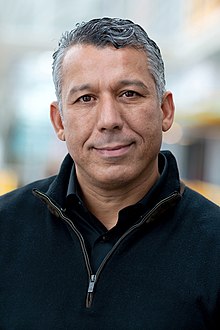 Raouf Boutaba
Raouf Boutaba
Raouf Boutaba received the M.Sc. and Ph.D. degrees in computer science from Sorbonne University in 1990 and 1994, respectively. He is currently a University Chair Professor and the Director of the David R. Cheriton School of Computer science at the University of Waterloo (Canada). His research interests fall in the areas of computer networking and distributed systems. Dr. Boutaba served as the founding Editor-in-Chief of the IEEE Transactions on Network and Service Management (2007-2010) and the Editor-in-Chief of the IEEE Journal on Selected Areas in Communications (2018-2021). He is a fellow of the IEEE, the Engineering Institute of Canada, the Canadian Academy of Engineering, and the Royal Society of Canada.
 Filip De Turck
Filip De Turck
Filip De Turck is a professor at the department of Information Technology (Intec) of Ghent University and imec, Belgium with expertise in communication software, network resource management, adaptive multimedia service delivery and next generation video delivery platforms. In this research area, he is involved in and successfully completed many research projects with industry and academia, served as Chair of the IEEE Technical Committee on Network Operations and Management (CNOM), former chair of the Future Internet Cluster of the European Commission, is on the TPC of many international network and service management conferences and workshops and serves in the Editorial Board of several network and service management journals. Prof. Filip De Turck regularly organizes international workshops on the above mentioned topics, serves as Editor-in-Chief of IEEE Transactions on Network and Service Management (TNSM), and steering committee member of the IEEE/IFIP Network Operations and Management Symposium (NOMS), the IFIP/IEEE Integrated Network Management (IM) Symposium, the IEEE Conference on Network Softwarization (IEEE NetSoft) and the IFIP/IEEE Conference on Network and Service Management (CNSM). He also served as chair of the IEEE SDN Initiative Conference Committee, which coordinates initiative IEEE events and conferences on Softwarized Networks. Prof. Filip De Turck was named a Fellow of the IEEE (Institute of Electrical and Electronics Engineers) for outstanding technical contributions to network resource management and adaptive service delivery. He is currently (co-)author of over 750 publications. He received the IEEE ComSoc Dan Stokesberry Award 2021 for particularly distinguished technical contributions to the growth of the network operations and service management field.
 Alberto Leon-Garcia
Alberto Leon-Garcia
Alberto Leon-Garcia is Professor in Electrical and Computer Engineering at the University of Toronto. He is a Life Fellow of the Institute of Electronics and Electrical Engineering "For contributions to multiplexing and switching of integrated services traffic". He authored the textbooks: Probability and Random Processes for Electrical Engineering, and Communication Networks: Fundamental Concepts and Key Architecture. Leon-Garcia was Founder and CTO of AcceLight Networks in Ottawa from 1999 to 2002. AcceLight developed a multi-service switch-router with all-optical fabric. Leon-Garca was Scientific Director of the NSERC Strategic Network for Smart Applications on Virtual Infrastructures (SAVI), and Principal Investigator of the project on Connected Vehicles and Smart Transportation. SAVI designed and deployed a national testbed in Canada that converges cloud computing and software-defined networking. CVST designed and deployed an application platform for smart transportation. Leon-Garcia’s research is currently focussed on the design of intelligent automated management systems for large-scale infrastructures. Leon-Garcia was Founder of StreamWorx.ai which developed massive-scale, real-time streaming analytics software for network operations and cybersecurity applications. StreamWorx was acquired and is now part of OpenText. Leon-Garcia has held several Chair positions at the University of Toronto: Nortel Chair in Network Architecture and Services; Skoll Chair in Computer Networks and Innovation; Canada Research Chair in Autonomic Service Architecture; and Distinguished Professor in Smart Infrastructures.





